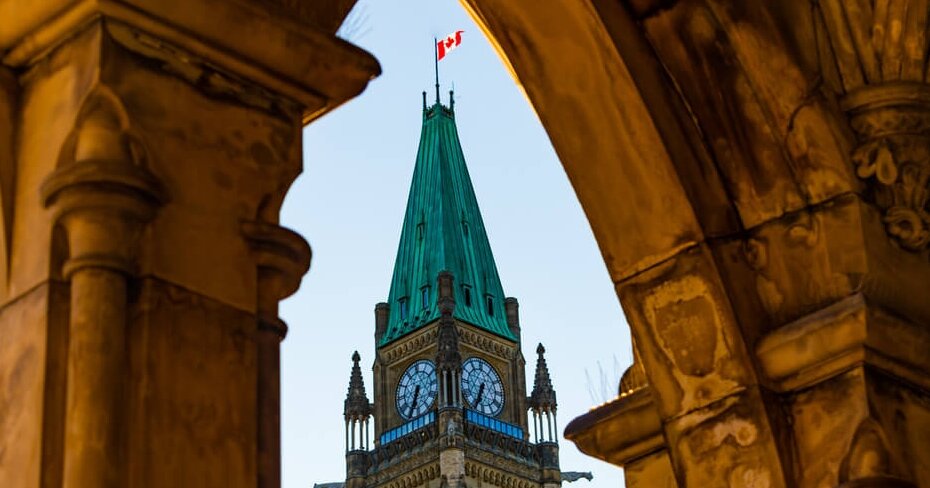How foreign buyers can navigate Canada's property ban
By: Leah Golob on September 17, 2024
After the federal government extended its ban on foreign ownership of Canadian housing earlier this year, foreign investors won’t have much luck purchasing residential property in Canada, at least until January 2027.
First introduced in January 2023, the Purchase of Residential Property by Non-Canadians Regulations prevents foreign corporations and non-Canadian citizens or permanent residents from buying residential property in Canada for their first two years living in the country.
The ban of foreign ownership is part of the federal government’s economic plan to make housing more affordable for Canadians. Their belief is that foreign ownership of residential real estate has amped up housing affordability issues across the country and particularly in large, urban cities, like Toronto and Vancouver.
The government is also concerned that increased foreign ownership will eventually price Canadians out of the housing market altogether in cities and towns nationwide. To that end, non-Canadians - or anyone who helps a non-Canadian - violate the foreign ownership, can be slapped with a fine of up to $10,000 and a court order to sell the property.
Experts are mixed on the ban’s efficacy, however. According to realtors and economists, foreign ownership of residential property has only dropped to a single percentage point from two to three per cent two years ago.
What are the exceptions to the ban?
The ban doesn’t exclude all foreign buyers from purchasing any property in Canada. Under the Act, residential properties are considered buildings with three dwelling units or less and include semi-detached houses and condo units.
Larger buildings with four or more dwelling units, however, are excluded from the ban.
The regulations also don’t apply to property located outside of a census agglomeration or a census metropolitan area, meaning properties in small, non-urban areas are available to foreign buyers. For example, Mont-Tremblant, a municipality in Quebec, allows foreign buyers.
Certain individuals are also excluded from the Act, under the following conditions:
Temporary students
Must be enrolled in a program recognized by the Immigration and Refugee Protection Regulations.
Must have filed tax returns for the past five years.
Present in Canada for at least 244 days in the last five years.
Must be purchasing a property priced at $500,000 or less.
Temporary workers
Who hold a valid work permit or authorization to work in Canada.
Who have not previously purchased a property during the prohibition period.
Who have at least 183 days remaining on their work permit or authorization at the time of purchase.
Refugees
Who have been granted refugee protection or recognized as a protected person under the Immigration and Refugee Protection Act.
Who have received temporary resident status.
Non-Canadians spouses and common-law partners
Must be purchasing a residential property in Canada with a spouse or common-law partner who is a Canadian citizen, a person registered under the Indian Act, a permanent resident or a non-Canadian exempt from the ban.
Accredited members of foreign missions in Canada
Must have a passport with valid diplomatic, consular, official or special representative acceptance issued by the Chief of Protocol of Canada.
Related: Government of Canada programs to support homebuyers in 2024
How difficult is it to purchase a home as a foreign buyer?
Even for homebuyers who are exempt from the ban, there can be greater financial barriers for foreign buyers than citizens or permanent residents when it comes to buying a home.
Here’s what may be required when applying for a mortgage:
Larger down payment:
U.S. residents are often required to make a down payment of at least 20 per cent of the home’s purchase price. In contrast, Canadian residents can make a down payment of less than 20 per cent for homes under $1 million but are required to buy mortgage default insurance.
Foreign buyers from outside of the U.S. are generally required to provide a 35 per cent down payment.
Down payments must be kept in a Canadian bank account prior to making the first payment.
Some lenders might also require a year’s worth of mortgage payments stored in a Canadian account before granting approval.
Credit score:
Foreign buyers still need a credit score to qualify for a loan. If they don’t have one with Canadian credit bureaus, like Equifax, they will either need one from an international credit bureau or a reference letter from their current bank.
Proof of income:
Like Canadian residents, foreign buyers will also need to provide proof of income to buy a home. They’ll need to provide a recent pay stub and letter of employment confirming how long they’ve been with the company, while also listing an annual salary and bonuses.
What are the tax implications of buying a home as a foreign buyer?
Foreign buyers may also face greater tax implications when buying a home in Canada.
Certain provinces impose a Non-Resident Speculation Tax, also known as a Foreign Buyers’ Tax or an Additional Property Transfer Tax.
In Ontario, the Non-Resident Speculation Tax is 25% of the purchase price of the residential property, while foreign buyers in British Columbia are taxed 20% of the purchase price in certain regions. These taxes are in addition to land transfer taxes and can be a significant additional cost for buyers.
To further alleviate Canada’s housing crisis, the federal government created the Underused Housing Tax which is an annual one per cent tax for vacant or underused properties. The tax targets foreign investors, as well as some Canadian owners, such as certain trustees and corporations that might buy up property without using it or providing housing for others.
Given Canada’s regulations, taxes and mortgage approval process, buying residential property in Canada can be challenging for non-residents. Even if you’re a foreign buyer who falls under a regulatory exclusion, you’ll need to consider the cost and complexity of home ownership before making the leap.


